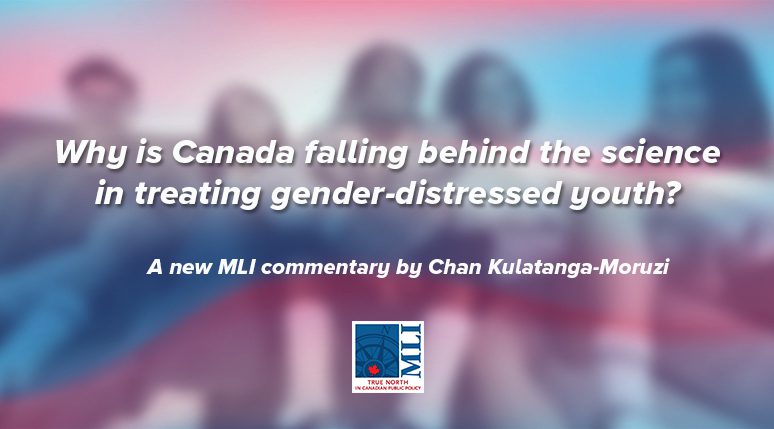Major Uncertainties in the Use of Puberty Blockers -- Canadian Research
"[Doctors should] clearly communicate [the major uncertainties that remain with children and parents and check] whose values they are prioritizing [when prescribing puberty blockers and masculinizing or feminizing hormones to youth].""We are very uncertain about the causal effect of the [drugs] on depression. Most studies provided very low certainty of evidence about the outcomes of interest, thus we cannot exclude the possibility of benefit or harm.""Since the current best evidence, including our systematic review and meta-analysis, is predominantly very low quality, clinicians must clearly communicate this evidence to patients and caregivers.""[Guideline developers and policymakers should also be transparent] about which and whose values they are prioritizing when making recommendations and policy decisions."Report: Canadian research

According
to a team of researchers in Canada, an absence of evidence on the
efficacious use of puberty blockers and cross-sex hormones that have
been increasingly seeing use on children presenting with gender
dysphoria along with teens self-identifying as transgender amounts to
medical dysfunction, potentially harming the futures of many of these
children. Whether, for the time being, their use is helpful or harmful,
cannot be discerned given the low certainty surrounding the issue and
absence of research.
When
in doubt -- abstain, or make it quite clear that the prevalent use of
cross-sex hormones and puberty blockers on the very young is fraught
with uncertainty regarding future impact. A major British review that
had been commissioned by the National Health Services of England found
evidence questioning the safety and efficacy of puberty blockers for
children with gender dysphoria to be weak, "built on shaky foundations".
As
a result of the Cass Review's conclusion of doubt, doctors in the
United Kingdom were instructed to stop routinely prescribing puberty
blockers temporarily, to children and youth under 18 years of age. More
latterly, after independent expert advice concluded such drugs pose an "unacceptable safety risk" the ban became indefinite.
In
Canada, however, no impact from the Cass Review has been seen in its
gender-affirming approach, with the Canadian Paedriatric Society
expressing criticism of what it terms "significant limitations, biases and inaccuracies" in the review, the result of a four-year enquiry. The CPS writing in its journal "The model of gender-affirming care in Canada differs in many ways from the approach that had been in place in the U.K".
According
to a federally funded study, however, 174 children under 16 referred to
one of ten gender-identity clinics in Canada saw 74 percent placed on
puberty blockers, with close to two-thirds progressing to masculinizing
or feminizing hormones.
"There's not enough reliable information.""We really don't have enough evidence to say that these procedures are beneficial.""Few studies have looked at physical harm, so we have really no evidence of harm as well.""There's not a lot that we can say with certainty, based on the evidence."Chan Kulatunga-Moruzi, an author of the review
Those
who begin puberty blockers for the most part tend to progress to
gender-affirming hormones which induce sex characteristics such as
facial hair or breast enlargement. Giving children identifying as
transgender time to decide whether to proceed to transition, while
relaxing their feelings of distress over body changes that disturb them.
Concerns relate to whether the drugs are locking in a gender identity
--their transition becoming an inevitable expectation.
Although
the process was initially thought to be fully reversible, the
potential seems to augur for long-term and irreversible effects --
according to the Canadian research team -- in their finding published in
the journal Archives of Disease in Childhood.
Screening 6,736 research titles involving puberty blockers, the study
found low certainty of evidence on the effects of puberty blockers on
depression, an oft-cited argument for their use on distressed youth.
 |
| "Since the current best evidence, including our systematic review and meta-analysis, is predominantly very low quality, clinicians must clearly communicate this evidence to patients and caregivers," researchers wrote. Photo by Getty Images |
Labels: Depression, Gender Dyspyhoria, Gender Identity Issues, Physical Harm, Puberty-Blocking Drugs
0 Comments:
Post a Comment
<< Home